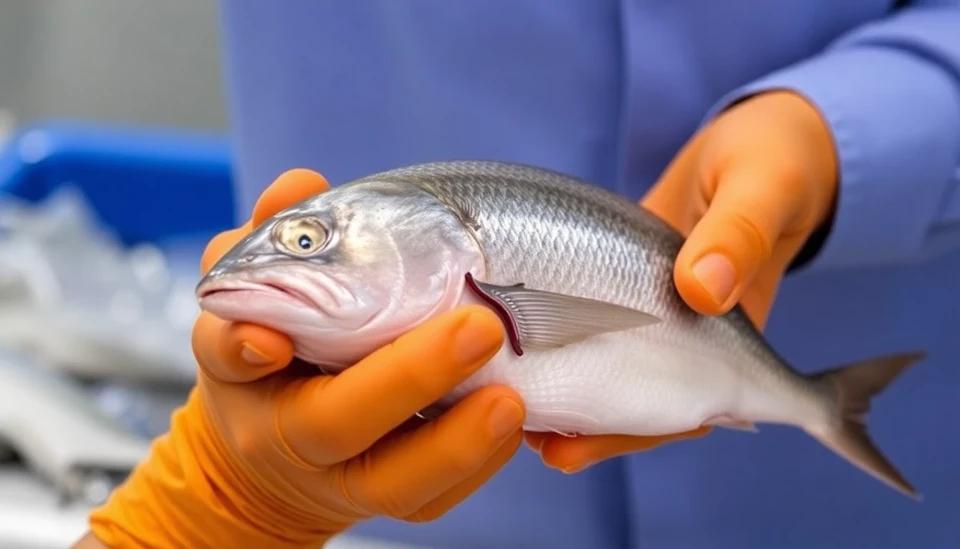
In an alarming development for the global seafood industry, recent investigations have uncovered significant challenges in tracing the origins of fish and seafood products. This crisis raises serious concerns about sustainability, food safety, and accountability, leaving consumers and businesses alike questioning the integrity of the supply chain.
The issues around seafood traceability are far-reaching, affecting not only local economies but also international trade. Various fish species, pivotal to both culinary culture and commerce, are often misrepresented or improperly labeled, making it laborious, if not impossible, for consumers to know what they are eating. This mislabeling can lead to overfishing, depletion of vital marine resources, and a compromised ecosystem.
Industry experts suggest that the lack of transparency is attributed to complex supply chains involving multiple intermediaries, each handling the products at various stages. As seafood can travel through numerous hands before reaching the consumer, maintaining a clear record of its journey is a daunting task.
Additionally, recent technological advancements meant to enhance traceability are not yet universally implemented across the industry. While some companies have adopted blockchain technology to track fish from ocean to table, a significant portion of smaller operations still relies on traditional methods, often leading to outdated or inaccurate information. This gap in technological adoption puts both the environment and consumer health at risk.
Furthermore, initiatives aimed at promoting sustainable practices are hindered by ineffective regulations and inadequate enforcement. Governments in some regions lack the resources or motivation to impose strict compliance measures. This lack of regulation creates an environment in which deceptive practices can thrive, enabling illegal fishing operations to masquerade as legitimate businesses.
Environmental organizations and consumer advocacy groups are calling for immediate reforms. They emphasize the need for a global standard in seafood traceability and stronger collaborative efforts among governments, businesses, and non-profits. The goal is to establish a system that guarantees authenticity, sustainability, and safety in seafood transactions.
As the demand for transparently sourced seafood continues to grow, the pressure mounts on producers to adapt and innovate. Transparency in sourcing allows consumers to make informed dietary choices and supports sustainable fishing practices, ultimately benefiting both the environment and the economy.
In this light, it is essential for consumers to advocate for better transparency. By opting for products from brands that prioritize traceability and sustainably sourced seafood, individuals can contribute to a movement toward more ethical consumption practices. The recent revelation of traceability issues serves as a crucial reminder of how interconnected our food systems are and the importance of holding them accountable.
With mounting pressures from consumers and environmental advocates, it remains to be seen how the seafood industry will adapt to the challenges of traceability. However, as awareness grows, both businesses and consumers have an opportunity to champion a more sustainable and transparent seafood market.
As this situation unfolds, stakeholders across the industry must assess their roles and responsibilities, ensuring that effective solutions are implemented to foster a more accountable seafood supply chain.
#SeafoodTraceability #SustainableFishing #FoodSafety #TraceabilityCrisis #ConsumerAdvocacy #MarineEcosystem
Author: Laura Mitchell




